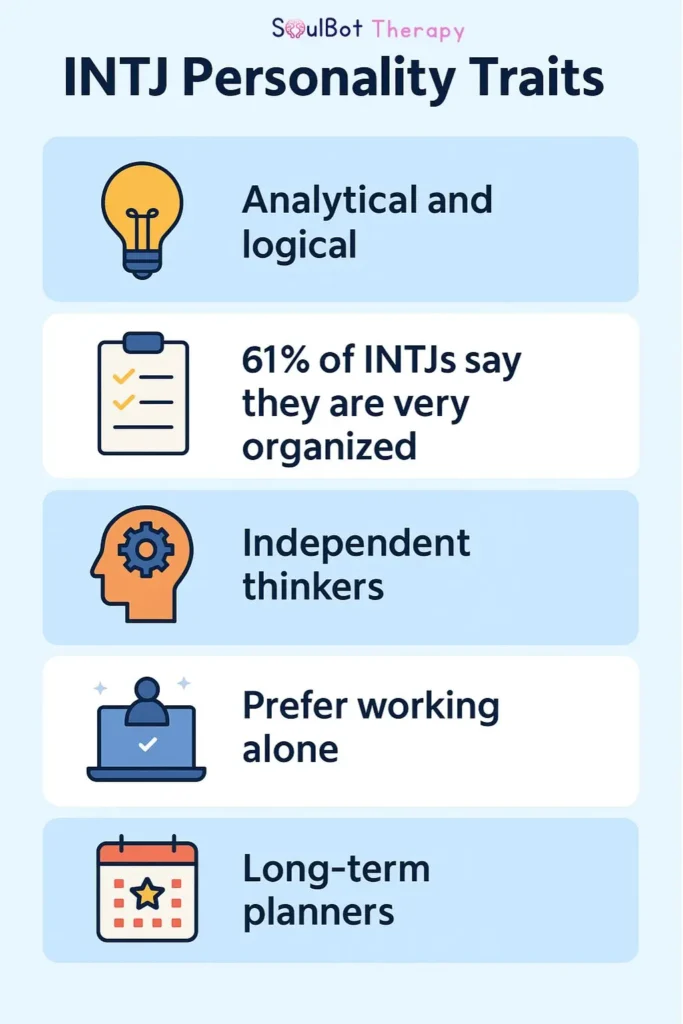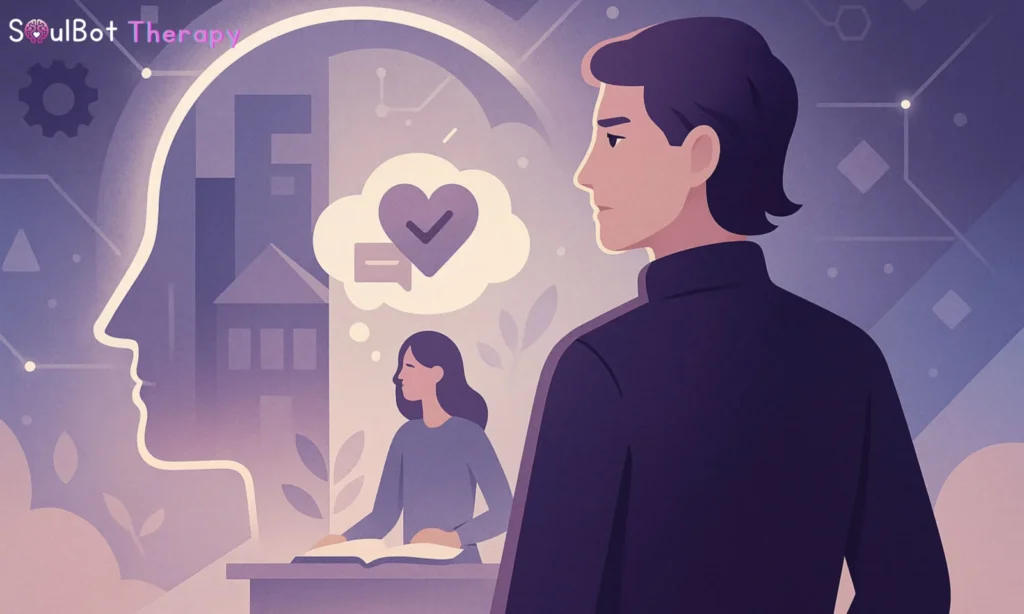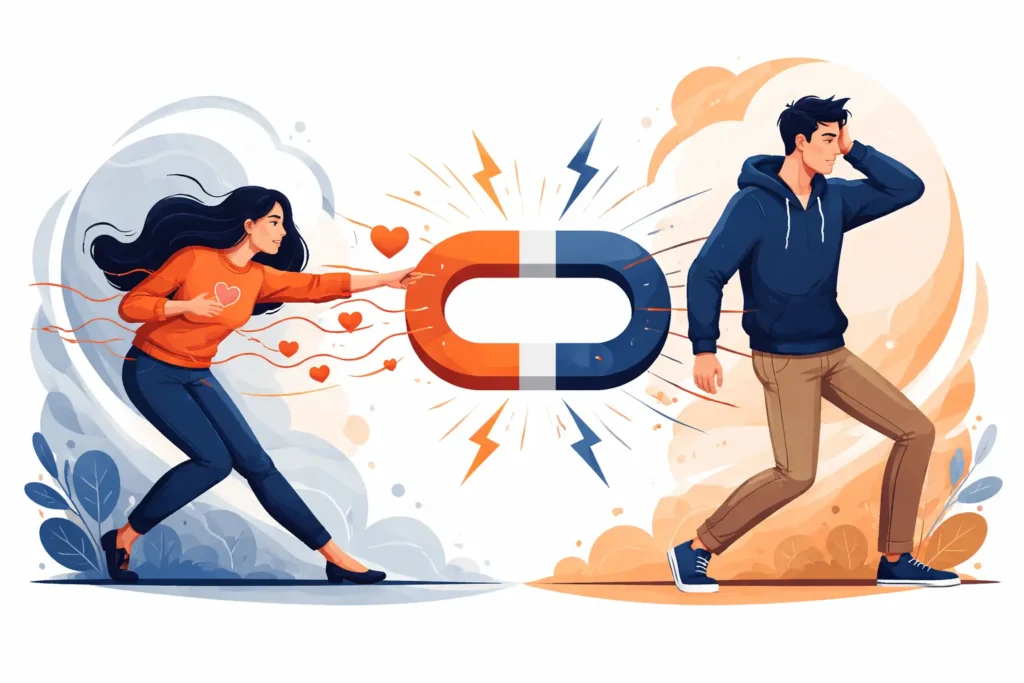The INTJ personality type, known as The Architect, represents only about 2% of the population. They’re the master planners, the visionaries who see the world as a system waiting to be optimized. But the same mind that sees patterns everywhere can also struggle with emotions, perfectionism, and connection.
If you’ve ever wondered what makes you tick (and what holds you back), this guide breaks down INTJ strengths and weaknesses, real-world challenges, and growth tools to help you build emotional balance and self-awareness.
🧠 Discover your actual type with our Free MBTI Personality Test
What Makes the INTJ Personality So Unique?
Before understanding INTJ strengths and weaknesses, let’s unpack the foundation. INTJs combine introversion (I), intuition (N), thinking (T), and judging (J), making them logical yet imaginative, independent yet deeply purpose-driven.
Core INTJ traits include:
- Analytical, long-term thinkers
- Self-motivated and ambitious
- Independent and disciplined
- Private but emotionally intense beneath the surface
📊 SoulFact: According to Verywell Mind, INTJs are more likely to rely on logic than emotion when making decisions, but they often crave deep meaning in their pursuits. (Verywell Mind – INTJ Personality Overview)
What Are the Main INTJ Strengths That Drive Success?
Here’s what sets INTJs apart from most: significant advantages in work, relationships, and personal growth:
- Strategic Thinking: They visualize the big picture while anticipating every outcome.
- Independent Vision: INTJs prefer autonomy and trust their inner compass over groupthink.
- Efficiency Focus: They dislike wasted time or effort in systems and order energize them.
- High Standards: Their pursuit of excellence drives innovation and mastery.
- Resilience Under Pressure: When others panic, INTJs analyze and act rationally.
These INTJ strengths make them influential leaders and creators when balanced with empathy and adaptability.
What are the most significant INTJ weaknesses (and how do we manage them)?
No type is flawless, and the INTJ weaknesses often mirror their greatest strengths:
Emotional Detachment: INTJs can seem distant or unemotional.
🧠 Fix: Practice emotional naming, recognizing feelings before rationalizing them away.
Perfectionism: Their drive for excellence can morph into self-criticism.
💡 Fix: Redefine success as improvement instead of perfection.
❤️ Fix: Build empathy by understanding emotional, not just logical, motivations.
Isolation Under Stress: INTJs retreat when overwhelmed.
🌙 Fix: Schedule connection emotional check-ins, not just problem-solving.
Understanding these patterns is the first step in INTJ personal growth awareness before action.

How Can INTJs Improve Emotional Intelligence?
Developing INTJ emotional intelligence isn’t about becoming “soft.” It’s about learning to integrate logic with emotional awareness for deeper relationships and effective leadership.
✅ Try this routine:
- Reflect: Use journaling or mood tracking to connect events to feelings.
- Listen Actively: Focus on empathy instead of solutions during conversations.
- Use Mindful Pauses: Take a breath before reacting logically to emotional topics.
- Leverage Tools: SoulBot’s emotional check-ins and reflection prompts can train emotional awareness daily.
How to Turn INTJ Self-Awareness Into Personal Growth
Knowing your INTJ strengths and weaknesses is valuable only when applied. Actual INTJ personal growth happens when they:
- Balance Independence with Vulnerability — asking for support strengthens, not weakens, leadership.
- Allow Flexibility — Perfectionism kills creativity; flow creates breakthroughs.
- Invest in Emotional Resilience — build routines for mindfulness and grounding.
- Embrace Continuous Learning — new systems, philosophies, or emotional skills keep the Architect evolving.
📊 SoulFact: Studies published in Frontiers in Psychology show that emotionally intelligent individuals make more balanced long-term decisions, a skill INTJs can consciously cultivate.
💬 Final Thought
Understanding your INTJ strengths and weaknesses isn’t about labeling yourself it’s about mastering your design. The Architect mind is both a fortress and a foundation. When you let logic and emotion work together, you stop merely analyzing life; you start living it with purpose.








